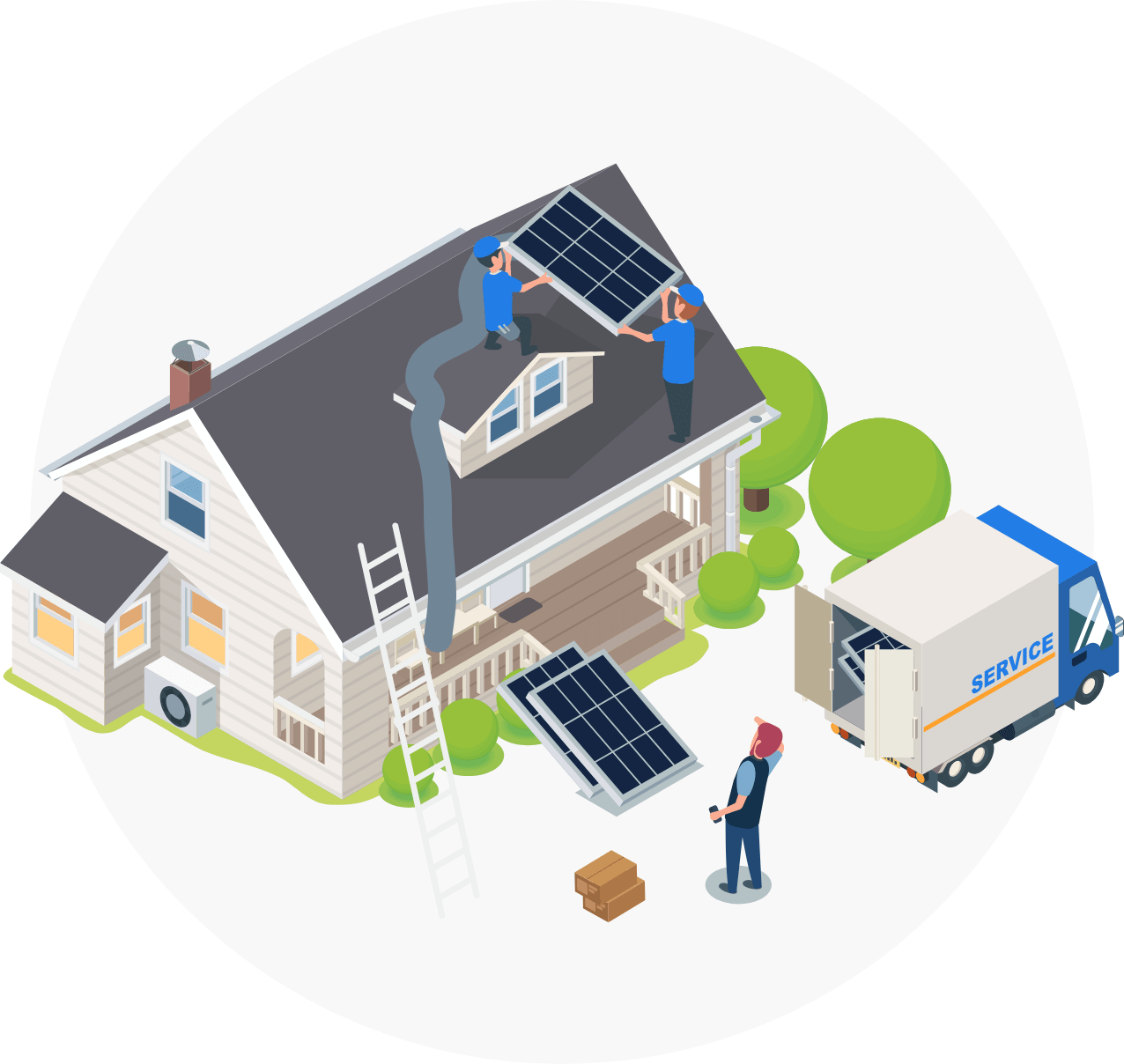

Solar power is the power obtained by harnessing the energy of the sun’s rays. We use solar energy in our everyday lives for a variety of activities – from drying clothes on a clothesline to creating salt from seawater, solar energy has been used for centuries by humans. Solar energy is captured by your home solar panel system and then converted into electricity by using either photovoltaic or concentrated solar power. Using mirrors or lenses (in the case of concentrated solar power), large beams of light are focused into a small beam. Using the photoelectric effect, photovoltaic solar power converts solar energy into electric energy.

Solar panel prices have been dropping in recent years and the solar power industry has been growing exponentially, meaning now is the perfect time to purchase a home solar panel system. And with the 30% Federal Solar Tax Credit, there’s no excuse not to at least research solar power for your home. Did you know that on average, homeowners can save about $25,000 over 25 years when they switch to solar power. Talk about saving for the future! This clean and pollution-free process can provide electricity to your home less than what your electric company charges.


We schedule a time to talk!

We set a date for installation

You start enjoying the benefits!

We offer comprehensive, code-compliant systems that allow you to generate your own electricity at home. Designed to interconnect with your existing utility service, they feature solar modules, plug-and-play wiring, power electronics and our patented mounting kits. Our installer network provides system installation and service.
Solar cells in the modules mounted on your roof convert sunlight directly into DC power. A component called an inverter converts this DC power into AC power that can be used in your home. The system is interconnected with your utility. During the day, if your solar system produces more electricity than your home is using, your utility may allow net metering or the crediting of your utility account for the excess power generated being returned to the grid. Your utility would provide power as usual at night and during the day when your electricity demand exceeds that produced by your solar system. Systems are also available with a battery backup. Part of the power produced by your solar system during the day is used to charge the batteries, which provide power for your critical loads in the event of a power outage.
No. Sunlight must be present for your solar modules to produce power. At night, you draw power from your utility.
Yes, though they produce less electricity. Under a light overcast sky, panels might produce about half as much as under full sun.
It is important to understand that a solar electric system does not need to provide all of the electricity you need to be of great value. A small system that displaces an average of one-quarter to one-half of your average demand reduces your electric bill. With battery backup, it can deliver uninterrupted power to critical loads during utility outages for days or weeks. We are happy to provide you with a system that supplies 100 percent of your energy needs, but cutting your electricity by 40 to 50 percent is typically the most cost-efficient approach for home solar power.
Some homeowners’ associations have rules regarding the installation of anything on your roof or grounds. If you belong to a homeowners’ association, consult your covenants for details. Many states prohibit homeowners’ associations from restricting solar devices.
Yes. In fact, our systems are designed as on-grid systems, meaning they are designed to interconnect with utility power.